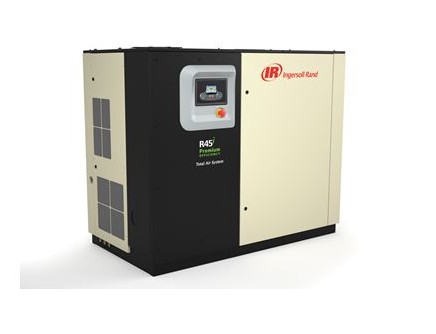This is a million dollar question and as you would expect there is no simple answer. It very much depends on what you need it for. But in an attempt to give the best answer to the question lets take a look at the options.
What is an industrial compressor?
An industrial compressor is a high quality air compressor designed to be used in a manufacturing or industrial business where the air compressor is likely to be used for say 40 to 80 hours a week. These compressors are very different to DIY, domestic or amateur compressors which are designed for use maybe 1 or 2 hours a week at most. The big difference between an industrial and DIY compressor are the design and materials used and obviously the price. Most compressors you can buy from DIY stores and ones you see on the internet from ‘non specialist’ compressor suppliers are DIY type compressors.
How much air do you require? What pressure do you need?
The next big question is how much air do you require and at what pressure? The more air you require the bigger and more expensive the compressor is to buy and to use. Compressors are sized based on the amount of power they are rated for. This is normally designated in KW.
Normally air volumes are measured in cfm (cubic feet per minute) or M3/min (cubic meters per minute). Air pressure is normally measured in psi or bar (pounds per square inch).
Typical industrial air compressors operate in the range of 20 to 200 cfm (0.6 – 5.5 m3/min) and operate at a pressure of between 7 and 13 bar (100 – 190psi)
Typical industrial air compressors have a power rating of between 5 and 30KW creating between 20 – 200cfm at 7 bar. The power of a compressor in KW is directly related to the amount of air they produce, so a 5KW compressor will produce about 20 cfm at 7 bar from pretty much any manufacturer.
Needing a higher pressure doesn’t in itself make the compressor cost more, but the higher the pressure the lower the amount of air the compressor makes. So a 11KW compressor will make 64 cfm at 7 bar but only 46 cfm at 13 bar from the same size of air compressor!
The good news is that if you have a 13 bar compressor you can use this to supply air at 7 bar. Obviously this doesn’t work the other way round! If in doubt always get a slightly higher pressure compressor than you need
What are you using the compressed air for?
This is another critical question when deciding what type of compressor to buy. If you have a steady but low requirement for air you can get away with a small compressor with a small air receiver. If you have a steady, high demand you need a big compressor. If you have an irregular demand you probably need a larger compressor to cope with the maximum flow requirement, but it may well then sit around not working at all for much of the day.
If usage is very irregular you are probably better to look at a piston compressor rather than a screw or vane compressor. Piston compressors like being used irregularly. Screw and vane compressors need to be used regularly in order to get the oil lubrication working properly.
Click here to find out more about piston compressors
Click here to find out more about screw compressors
Click here to find out more about vane compressors
Do you need a dryer and filters?
The answer to this is almost always yes. But the question is whether it needs to be a desiccant dryer or can you get away with a refrigerated dryer? We suggest for every application at least a refrigerated dryer and 2 filters are specified. This equipment stops water getting into your pipework and potentially causing corrosion. It also prevents water getting into power tools, control circuits, spray guns and numerous other items causing additional problems later in life.
If you are doing anything with delicate machinery, food, medical or pharmaceutical products a dryer is essential and often this must be a desiccant dryer. Desiccant dryer are beyond the scope of this article but effectively they are high tech air dryers that reduce the amount of water in compressed air to very low levels.
So what appears to be an easy question ‘what is the best low cost industrial air compressor’ has a rather complex answer I’m afraid. But hopefully this article has given you at least a few pointers so you can at least ask the right the questions and understand to some extent the answers.


